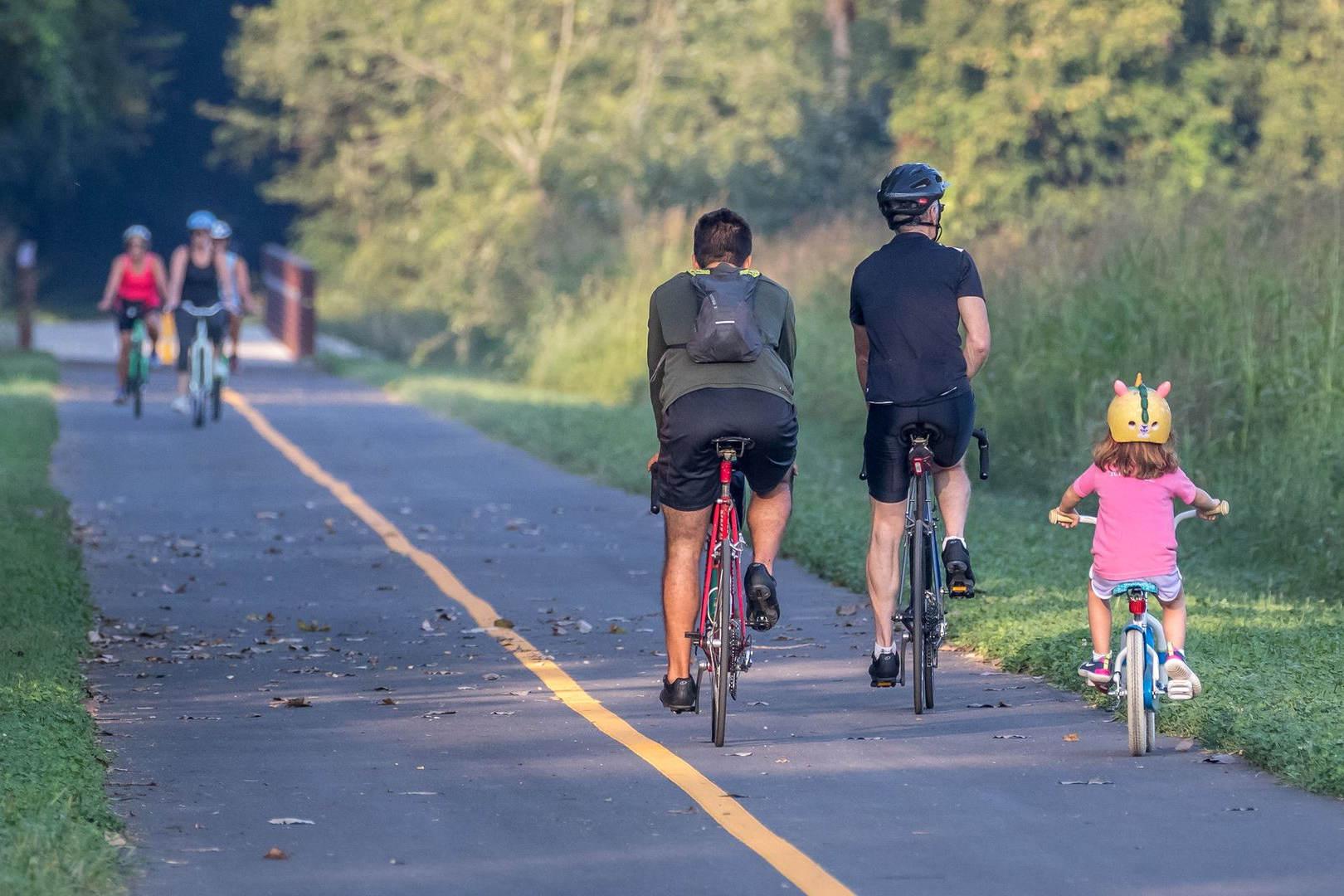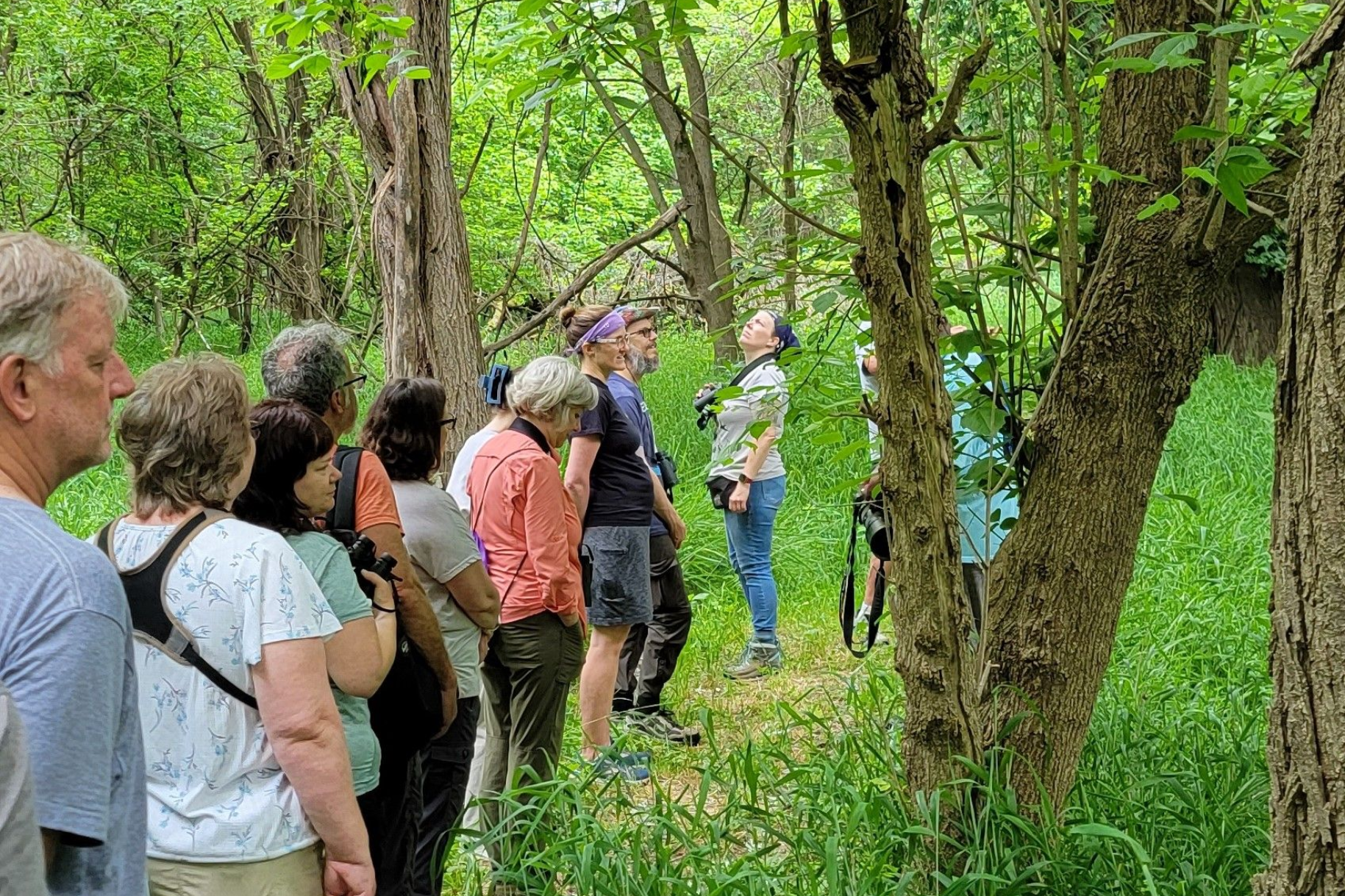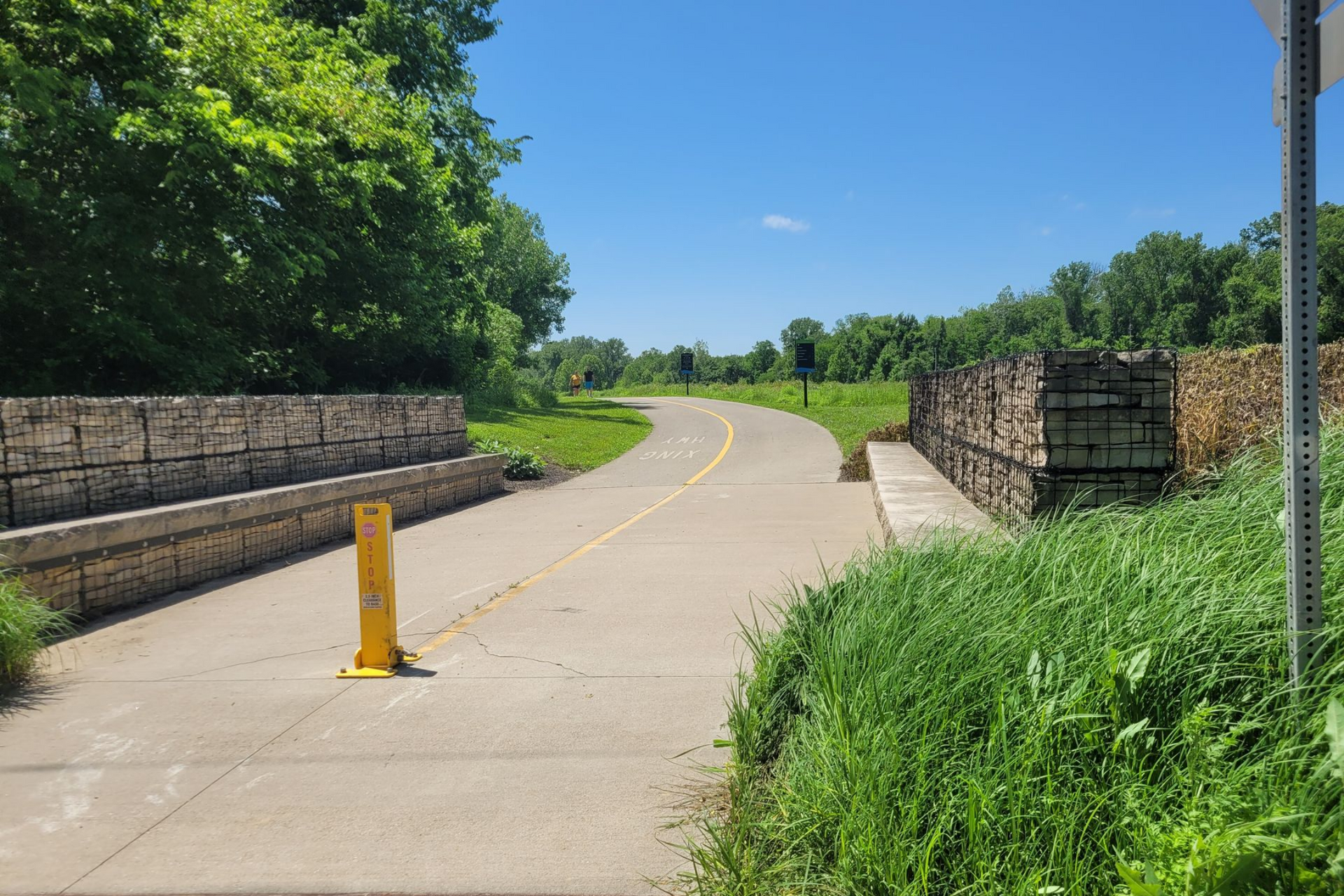BUTTONBUSH WOODS
BUTTONBUSH WOODS
Buttonbush Woods is a vital 103-acre natural area within Origin Park, located along the Ohio River in Southern Indiana. Once heavily impacted by industrial activity, it now sits at the heart of a transformative vision to restore ecological health, reduce pollution, and build climate resilience.
BUTTONBUSH WOODS' UNIQUE AMMENITIES
With 10,000 linear feet of new trails and 53,000 square feet of ADA-accessible elevated pathways— usable even during floods — Buttonbush Woods will offer vital access to the outdoors for people of all ages and abilities.
Ecologically, the site is a rare gem. Home to over 180 bird species, including several that are threatened or endangered, Buttonbush Woods is a biodiversity hotspot. Its restoration will protect and expand habitats like sedge meadows, savannas, and riparian zones, helping preserve the region’s ecological richness for generations to come.
HIKING TRAILS
BIKING
ANIMAL WATCHING
FAMILY GATHERING
HIKING TRAILS
BIKING
ANIMAL WATCHING
FAMILY GATHERING
At the entrance to Buttonbush Woods and Mill Creek Trail, Origin Park has a brand new parking lot, picnic and gathering spot - Buttonbush Woods Trailhead!
While major projects like the Event Center can take a couple of years or more to develop, people want to visit Origin Park now. We’re responding to that need with simple improvements to serve everyday visitors, like this new set of amenities we’re calling the Buttonbush Woods Trailhead. This inviting location offers a perfect spot to park, picnic, and play, with easy access to Mill Creek Trail.
In keeping with Origin Park’s creed of sustainability, Kristin Booker of Booker Design Collaborative laid out the site to take advantage of existing concrete pads and compacted areas left behind by the previous owner. To add splashes of color and fun, muralist Riley Gregor of StraightEdge Creative painted two concrete pads for bike racks and accessible picnic tables, funded by CenterPoint Energy Foundation. Gregor painted a third mural pad with game graphics to prompt child’s play.
Nearby, our new “Friendship Circle” of log seats makes a great space for small group conversations and programs, thanks to the Duke Energy Foundation. This project was built by EZ Construction, with furnishings installed by Holderfield Construction.Lastly, EZ Construction created our new parking lot, which can house 16 cars and 6+ bicycles.
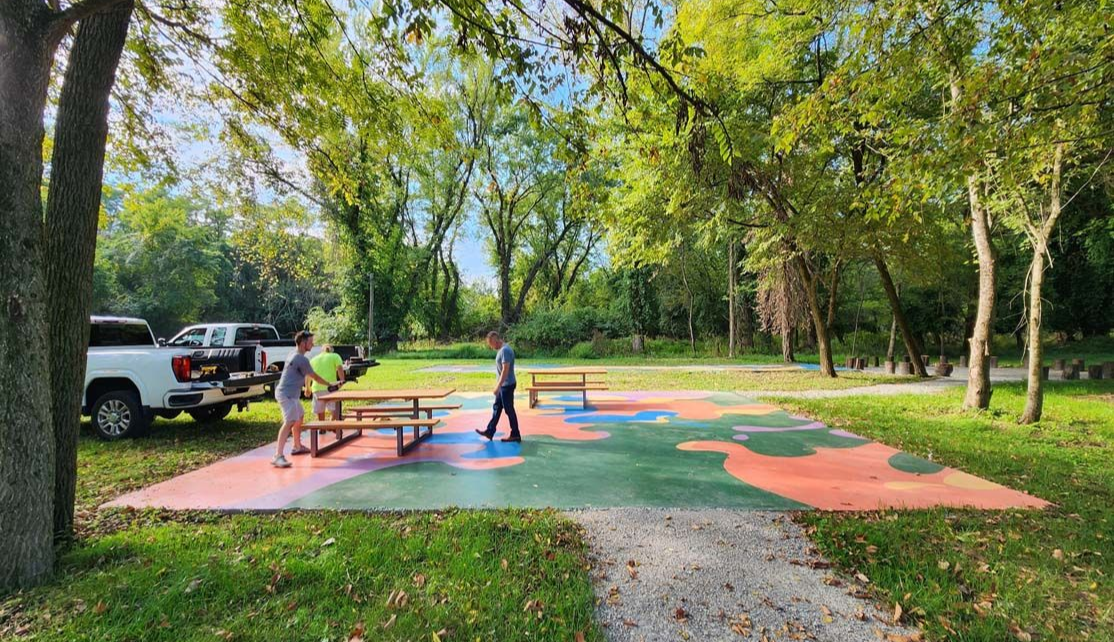
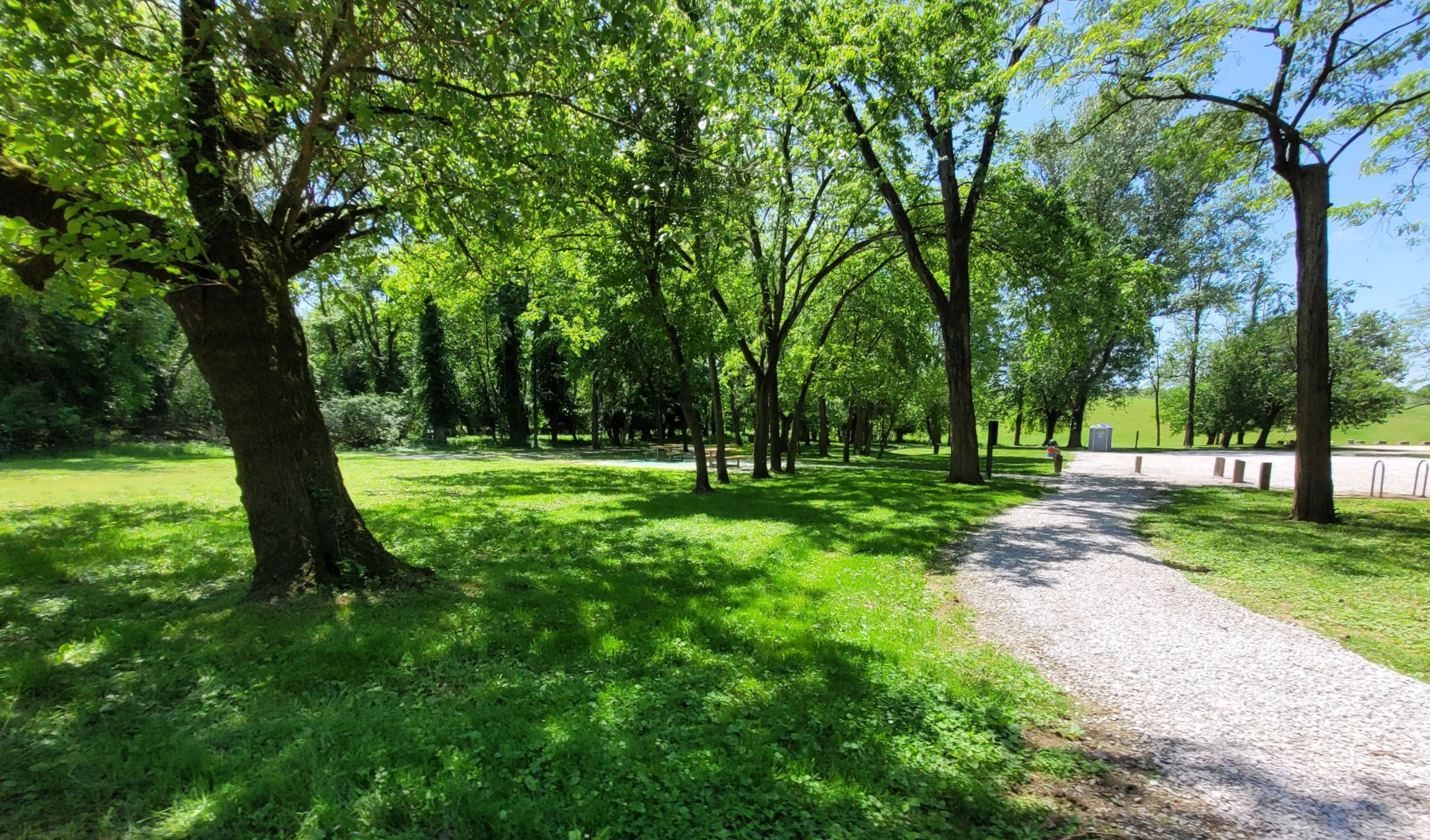
At the entrance to Buttonbush Woods and Mill Creek Trail, Origin Park has a brand new parking lot, picnic and gathering spot - Buttonbush Woods Trailhead!
While major projects like the Event Center can take a couple of years or more to develop, people want to visit Origin Park now. We’re responding to that need with simple improvements to serve everyday visitors, like this new set of amenities we’re calling the Buttonbush Woods Trailhead. This inviting location offers a perfect spot to park, picnic, and play, with easy access to Mill Creek Trail.
In keeping with Origin Park’s creed of sustainability, Kristin Booker of Booker Design Collaborative laid out the site to take advantage of existing concrete pads and compacted areas left behind by the previous owner. To add splashes of color and fun, muralist Riley Gregor of StraightEdge Creative painted two concrete pads for bike racks and accessible picnic tables, funded by CenterPoint Energy Foundation. Gregor painted a third mural pad with game graphics to prompt child’s play.
Nearby, our new “Friendship Circle” of log seats makes a great space for small group conversations and programs, thanks to the Duke Energy Foundation. This project was built by EZ Construction, with furnishings installed by Holderfield Construction.Lastly, EZ Construction created our new parking lot, which can house 16 cars and 6+ bicycles.


Buttonbush Woods Restoration - Plan in Action
While it may look green and healthy, Buttonbush Woods needs a lot of help. This 103-acre stand in Origin Park lies within the Ohio River floodplain and provides valuable habitat for local fauna and migratory birds. Yet the woods are rife with invasive plants that are rapidly taking hold.
The restoration plan includes planting 800 trees and rehabilitating 103 acres of forest and meadowland. These natural systems will not only create a buffer against floodwaters and help moderate local temperatures, but they will also capture an estimated 250 to 650 metric tons of CO₂ each year—offering a meaningful step toward regional climate resilience. The undergoing project of the Buttonbush Woods restorations includes installing green infrastructure that filters pollutants, improving overall air and water quality, and creating a safer, healthier place to live.
In our efforts to clean up contaminated land within Origin Park, River Heritage Conservancy removed two 4,000-gallon underground storage tanks from the former Red Ball property in September. This work, undertaken with environmental consultants SME, was made possible by our EPA Brownfields Multipurpose Grant. In addition to removing potential contaminants from the site, the grant will allow for any impaired soil and/or groundwater affected by the tanks to be remediated appropriately. This is just one of many steps we are taking to clean up brownfields within Origin Park to support a healthy and thriving public park space.
With funding from the Natural Resources Conservation Service, Origin Park has completed a "timber stand" study and is tackling the challenge. A wildlife and forest management company called Habitat Solutions is at work in our woods, attacking grape vines, girdling invasive trees, and planting native trees to improve the quality of the timber stand. In addition, Habitat Solutions will eliminate 90% of competing brushy plants, including bush honeysuckle, multi-flora rose, and autumn olive, by cutting stumps and carefully applying herbicide.
Buttonbush Woods Restoration - Plan in Action
While it may look green and healthy, Buttonbush Woods needs a lot of help. This 103-acre stand in Origin Park lies within the Ohio River floodplain and provides valuable habitat for local fauna and migratory birds. Yet the woods are rife with invasive plants that are rapidly taking hold.
The restoration plan includes planting 800 trees and rehabilitating 103 acres of forest and meadowland. These natural systems will not only create a buffer against floodwaters and help moderate local temperatures, but they will also capture an estimated 250 to 650 metric tons of CO₂ each year—offering a meaningful step toward regional climate resilience. The undergoing project of the Buttonbush Woods restorations includes installing green infrastructure that filters pollutants, improving overall air and water quality, and creating a safer, healthier place to live.
In our efforts to clean up contaminated land within Origin Park, River Heritage Conservancy removed two 4,000-gallon underground storage tanks from the former Red Ball property in September. This work, undertaken with environmental consultants SME, was made possible by our EPA Brownfields Multipurpose Grant. In addition to removing potential contaminants from the site, the grant will allow for any impaired soil and/or groundwater affected by the tanks to be remediated appropriately. This is just one of many steps we are taking to clean up brownfields within Origin Park to support a healthy and thriving public park space.
With funding from the Natural Resources Conservation Service, Origin Park has completed a "timber stand" study and is tackling the challenge. A wildlife and forest management company called Habitat Solutions is at work in our woods, attacking grape vines, girdling invasive trees, and planting native trees to improve the quality of the timber stand. In addition, Habitat Solutions will eliminate 90% of competing brushy plants, including bush honeysuckle, multi-flora rose, and autumn olive, by cutting stumps and carefully applying herbicide.
